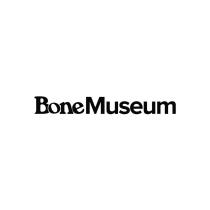
The Bone Museum
@bonemuseum
တိုင်းဒေသကြီး / တိုင်းဒေသကြီး:အမေရိက
အမျိုးအစား:
နေ့စဉ်
သိပ္ပံနှင့်ပညာရေး
-
52859ကမ္ဘာအဆင့်
-
12790နိုင်ငံ / တိုင်းအဆင့်
-
1.63Mနောက်လိုက်များ
-
3.18Kဗွီဒီယိုများ
-
31.44Mကြိုက်တယ်
-
ဗွီဒီယိုအသစ်များ25
-
နောက်လိုက်အသစ်များ2.2K
-
အမြင်အသစ်များ592.07K
-
Likes အသစ်49.15K
-
သုံးသပ်ချက်များအသစ်498
-
ဝေစုအသစ်2.23K
The Bone Museum ဒေတာလမ်းကြောင်း (ရက် 30)
The Bone Museum စာရင်းအင်းဆန်းစစ်ခြင်း (ရက် 30)
-
ပျမ်းမျှ Views 592.07K နောက်လိုက်များ / မြင်ကွင်းများ 0.37% -
ပျမ်းမျှအကြိုက်များ 1.4K ကြိုက်တယ် / မြင်ကွင်းများ 13.25% -
ပျမ်းမျှသုံးသပ်ချက်များ 18 သုံးသပ်ချက်များ / မြင်ကွင်းများ 0.08% -
ပျမ်းမျှဝေစု 68 မျှဝေပါ / မြင်ကွင်းများ 0.38%
The Bone Museum Hot Videos
ကျေးဇူးပြု၍ TikTok Inspiration Facebook အဖွဲ့သို့ဆက်သွယ်ပါ
ကျွန်ုပ်တို့သည်နောက်ဆုံးပေါ်ဖန်တီးမှုဗွီဒီယိုများကိုမျှဝေမည်ဖြစ်ပြီးလူတိုင်းနှင့်သင်မေးသောမေးခွန်းများကိုဆွေးနွေးနိူင်သည်။
TiktokSpy from IXSPY
သြဇာရှိသူများ၊ အေဂျင်စီများ၊ ကြော်ငြာရှင်များနှင့်ကုန်အမှတ်တံဆိပ်များအတွက်ဒီဂျစ်တယ်ကိရိယာများ။
လွတ်လပ်သောတတိယပါတီကုမ္ပဏီမဟုတ်၊ TikTok ၏တရားဝင်ဝက်ဘ်ဆိုက်မဟုတ်ပါ။
Copyright@2021 ixspy.com. All Rights Reserved

 Anti-detect Browser
Anti-detect Browser

